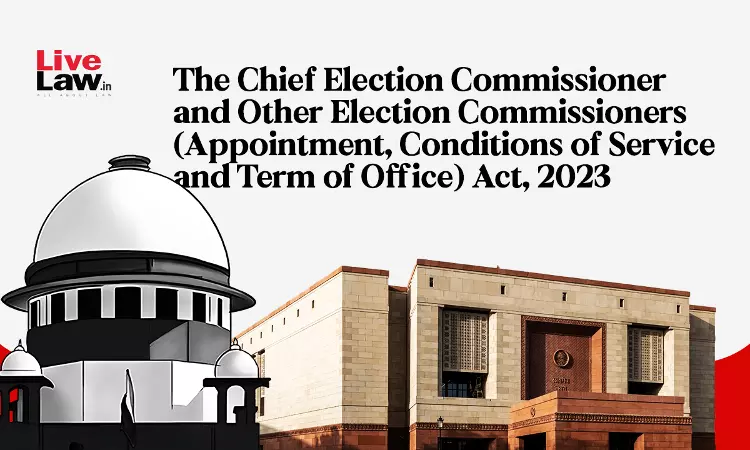Supreme Court Refuses To Stay Law Dropping CJI From Panel To Select Election Commissioners, Posts Matter To April 2024
Debby Jain
13 Feb 2024 3:53 PM IST

Next Story
13 Feb 2024 3:53 PM IST
The Supreme Court on Tuesday (February 13) refused to stay the operation of Section 7 of the Chief Election Commissioner and Other Election Commissioners Act, 2023 in a fresh petition challenging the Constitutionality of the provision.While issuing notice on the plea moved by the Association for Democratic Reforms, the Bench of Justices Sanjiv Khanna and Dipankar Datta noted that a similar...
